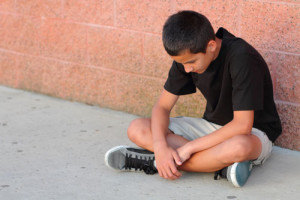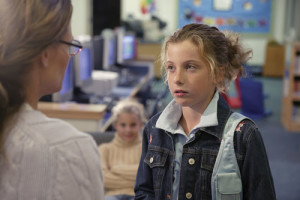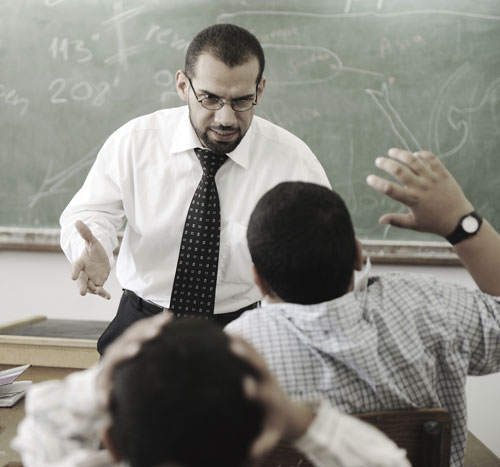Many of us accept the argument that what we experience in childhood has a profound effect on our lives as we grow older. Our childhood experiences are the raw material for what often shapes our worldview and our behavior as adults.
But to what extent do our experiences, behaviors and even our character traits in early life directly influence the kind of lives we may find ourselves living as adults? And how might the responses of others, particularly in the school setting, shape those adult outcomes?
These are the kinds of questions at the heart of two recent reports that shed light on the connection between our self-expression in our younger years and the implications for our well-being in adulthood.
Social competence and future wellness
Earlier this month, the Robert Wood Johnson Foundation released findings from a provocative 20-year study that looked at the social competence traits of kindergarten students – character traits such as sharing, listening to others, cooperating and helping others. The study found that the level of social competency displayed by children in kindergarten were “a consistent and significant indicator of both positive and negative future outcomes across all major domains: education, employment, criminal justice, substance use and mental health.”
 Children who tended to display positive social competence skills in kindergarten – those who were highly rated for capabilities such as “resolves peer problems,” “listens to others,” “shares materials,” “cooperates” and is “helpful” — were found to be more likely to have earned a high school diploma, attained a college degree and held a well-paying job later in life. Those that were rated lower for such capabilities were more likely to have been arrested in early adulthood, used drugs and needed government assistance.
Children who tended to display positive social competence skills in kindergarten – those who were highly rated for capabilities such as “resolves peer problems,” “listens to others,” “shares materials,” “cooperates” and is “helpful” — were found to be more likely to have earned a high school diploma, attained a college degree and held a well-paying job later in life. Those that were rated lower for such capabilities were more likely to have been arrested in early adulthood, used drugs and needed government assistance.
It would be easy to draw conclusions – dangerous conclusions — from such a study: that it illustrates that those who are problem students early on in school are clearly destined to become criminals later in life. But the study and its authors offer a much more nuanced look at the findings. For example, to what extent can we intervene early with children who might be struggling in their social and emotional development to help them build the social competence skills that can assure greater success in life? And how do the responses of educators and other school leaders actually shape the outcome of a child’s social and emotional development into adulthood?
Breaking the school-to-prison pipeline

How schools respond to the behaviors and perceived misbehaviors of more challenged students is the focus of a report that was released in late June by Advocacy & Communication Solutions (ACS). The report sheds light on the school-to-prison pipeline, a loaded expression that has come to summarize the extent to which America’s schools often fail to respond to at-risk students – young people from troubled backgrounds, those with learning disabilities, or those struggling with social and emotional development. All too often, such students find themselves funneled along a disciplinary trajectory that, instead of addressing their needs, lands them in the juvenile and criminal justice systems later in life.
ACS’s report argues that the forms of discipline enforced upon at-risk youth are often the very forms of discipline that exacerbate behavioral problems over the long haul. Donned under the umbrella of zero-tolerance policies, these approaches criminalize infractions of school rules, propelling students into situations of isolation that push them out of the school system and into the prison pipeline:
School zero-tolerance policies and their role in increasing the number of students suspended or expelled have become a high-profile point of discussion within the school-to-prison pipeline, because some zero-tolerance policies mandate extended periods of time out of the classroom, and students facing zero-tolerance discipline often fall behind and/or drop out of school entirely.
Even more troubling is the fact that, across the country, the students who are especially vulnerable to zero-tolerance approaches are students of color. African-American students “are suspended at a rate of more than three times that of their white peers, and those suspensions and subsequent expulsions mean African-American students are then more likely to fall behind in class, drop out of school, and become too familiar with the juvenile or adult justice systems.”
ACS’s report and the resources they lift up are worthy of deep consideration. Additionally, the U.S. Department of Education’s Office of Special Education Programs offers helpful insights for supporting a positive school environment through Positive Behavioral Interventions & Supports (PBIS). They suggest a school-wide systems approach to supporting positive student behavior through proactive learning strategies rather than reactive punishment-based strategies.
You might also take a read through Katherine Reynolds Lewis’s provocative article in this month’s issue of Mother Jones: “What If Everything You Knew About Disciplining Kids Was Wrong?” In it, she outlines the extent to which traditional approaches to disciplining “troubled” students is at the heart of the school-to-prison pipeline and how an approach by acclaimed psychologist Ross Greene is gaining traction in many schools and showing dramatic results in schools.




